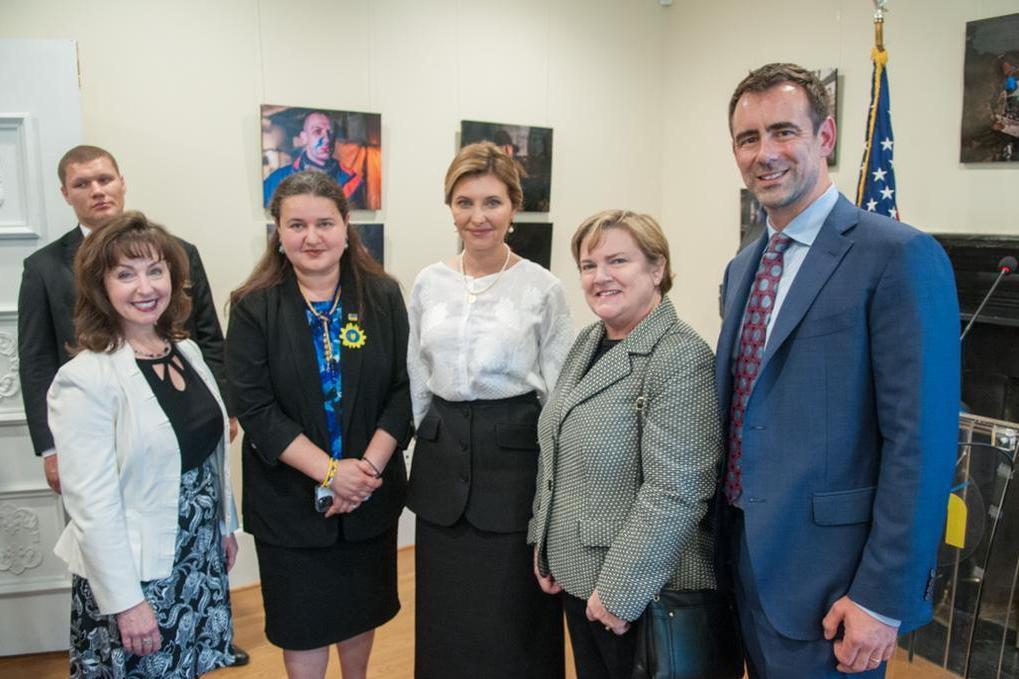How Partnerships Advance Digital Equity for Refugees
Words by Nayelli Gonzalez

Originally published by TriplePundit
When Russia invaded Ukraine in February of last year, people around the world galvanized donations to help address displaced Ukrainians’ immediate needs for safety, housing and food. The ability to remain digitally connected became a basic necessity as Ukranians fled their homes and became refugees. As known to many who are caught in humanitarian crises, sometimes the ability to access a connected device to attend school, look for work, find assistance resources, or connect to family, friends and culture can make all the difference in the world, too.
Digital equity has become an important component of relief efforts in communities displaced by war, famine, natural disasters and climate change. According to the Office of the United Nations High Commissioner for Refugees (UNHCR), refugees and displaced populations are 50 percent less likely than the general population to have an Internet-enabled phone, and they face equal hurdles in gaining access to hardware devices. This impedes their full participation in society, democracy and the economy.
How can refugees and asylum-seekers access the technology they need to continue to participate in civic life and pursue education or employment, especially when thrust into a new country, environment or language? Partnerships built on trust make it happen.
A message to refugees: “You are not forgotten”
Through partnerships with companies and organizations such as Microsoft, the Global Business Coalition for Education and NABU, tech giant HP has worked to advance digital equity for displaced people all over the world, including in Ukraine, Afghanistan, Syria, Lebanon, Jordan, Haiti and Uganda. As part of the company’s effort to accelerate digital equity for 150 million people by 2030, HP has established a network of partnerships with civil society organizations that work to ensure equitable access to the digital world and help unlock education, healthcare and economic opportunity for millions.
While this digital equity work provides refugees with access to essential services, for many it also helps restore a sense of normalcy and connection after such a traumatic experience.
“It sends a really strong message that they are not forgotten,” said Justin van Fleet, president of the global children's charity Theirworld and executive director of the Global Business Coalition for Education (GBC-Education). “ “While they are experiencing something that no one ever wants to experience, they do not have to stop learning and their future does not have to be put on hold.”
Making a real impact: How corporate partnerships can drive digital equity for refugees
HP’s partnership with GBC-Education brings together the expertise and resources of the business community to advance global education in support of U.N. Sustainable Development Goal 4. The collaboration has helped HP exponentially scale its efforts to improve learning continuity and enable better learning outcomes for refugees, which are among the various underserved communities aided around the world.
In Ukraine in particular, HP is working with GBC-Education to deploy over 74,000 devices to individuals responsible for driving education and learning for displaced Ukrainians still in the country, as well as Ukrainian refugees and the host communities serving them.
NABU, a New York-based nonprofit publisher of free multilingual children’s books and another of HP’s partners, also supports learning continuity by addressing the need for mother-tongue educational materials for displaced children across the globe, from Rwanda to Romania to the Philippines.
For displaced Afghan children, NABU has translated 40 original and leveled titles into Afghanistan’s official languages, Pashto and Dari, and published the books on its free reading app. HP then stepped in to fund the printing of the books to provide physical copies to refugee children through the Welcome.US program, an effort to welcome Afghans, Ukrainians and other displaced people to the United States.
“Witnessing the sheer numbers of displaced Afghans, and the desire for education, really impacted our global team,” said Tanyella Allison, the co-creator and executive director of NABU. “Some Afghan students, including girls who had been banned from learning in their own country, were offered temporary asylum in African countries where NABU staff members saw firsthand the need for relevant educational materials, and books to help them feel welcome and support their integration into the local school system.”
Additionally, at the outset of the war in Ukraine earlier this year, NABU responded by translating an additional 40 titles and their free reading app into Ukrainian, providing access to mother-tongue children’s books for the more than 1.5 million children globally who had been displaced. The organization also works with aspiring authors and illustrators from around the world to come together and publish children’s books in their mother tongue, and is further releasing a series of bilingual books in Ukrainian and Romanian, allowing the children to further adapt to their adopted communities.
“Our work with Welcome.US and our CEO’s engagement in the CEO Advisory Council allowed us to support Afghan newcomers in the U.S., alongside NABU and mEducation Alliance, and deliver both hardware as well as quality, mother-tongue learning materials,” said Michele Malejki, HP’s global head of social impact. “Our partnership with the Global Business Coalition for Education will help us reach millions of Ukrainian refugees and displaced individuals over the coming years, in partnership with the Ukrainian administration and organizations such as Junior Achievement, YMCA, UNDP, UNICEF and the Tent Partnership for Refugees.“
Partnerships like these provide a critical lifeline to enable displaced individuals to continue accessing vital education, economic opportunities, public services and personal connections, which will be crucial as the number of refugees and asylum seekers increases around the world.
This article series is sponsored by HP and produced by the TriplePundit editorial team.
Image courtesy of HP

